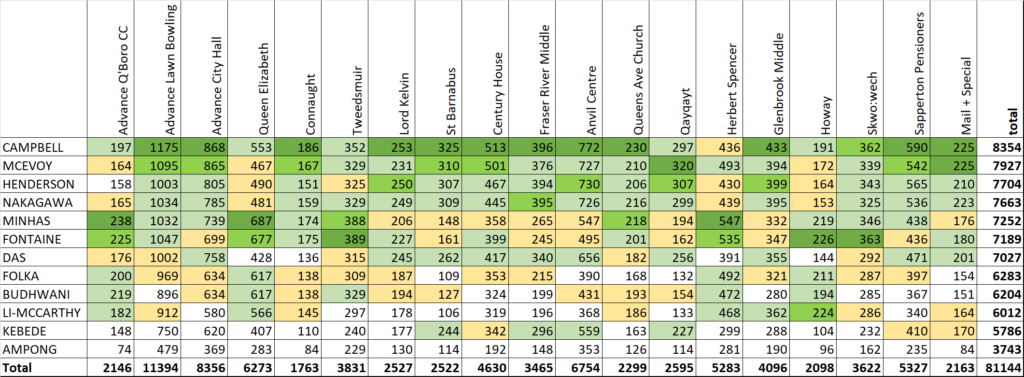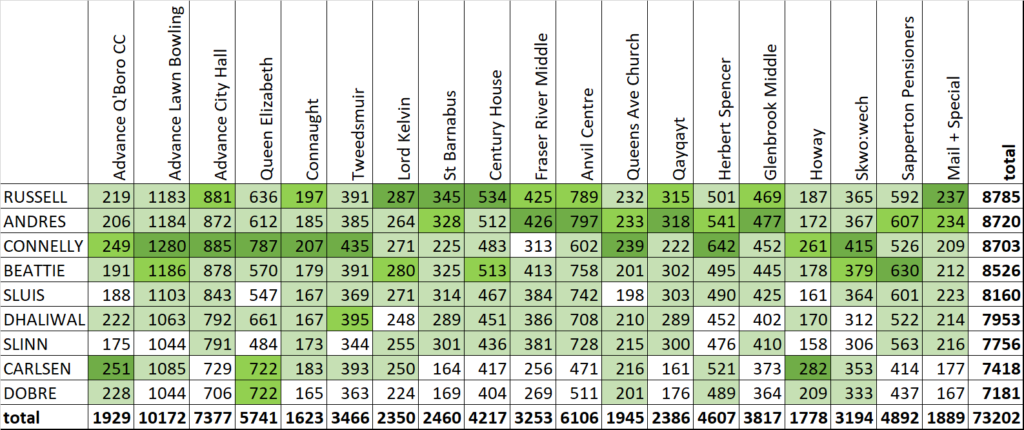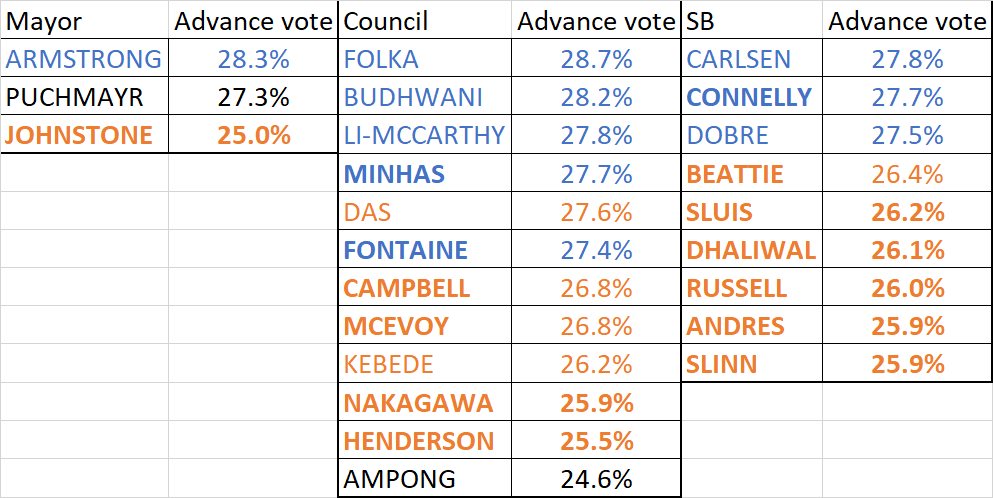Yep, I’m busy. So to keep something happening on this page, and in the spirit of recycling and placemarking, Here are the notes I used for the inauguration speech I delivered on Monday. Share and Enjoy.
Thank you.
I am honoured to be here, and humbled to receive the support from the community for this role.
I want to start my remarks by expressing deep gratitude to Mayor Jonathan Cote. I am so grateful for the work he did on Council and 8 years in this chair to move New Westminster forward. His work and vision have left a strong foundation for this Council to build upon – leadership on housing, on climate, on public engagement. Even through this last term with a global pandemic and so much economic uncertainty, we weathered the storm and are a stronger City now than we were 8 years ago.
And personally, having worked with Jonathan for 8 years, I also appreciate his mentorship and his friendship. His knowledge of the job, and his keen eye of my own strengths and weaknesses made our conversations over the last few weeks invaluable. I appreciate his sage and candid advice during the transition, and appreciate the time he took with the new Council Members to inspire their confidence in the work to come.
I also want to thank Chuck Puchmayr, Mary Trentadue, and Chinu Das for your service to this community. I have watched as all three of you put your hearts and souls into this work, each leaving indelible marks on the City. Especially through the challenging last 4 years, I am proud or our reputation as one of the most functional councils in the Lower Mainland, and the work you did to make that happen. We found consensus on most issues, and were respectful in our disagreements. It wasn’t easy, but most Mondays I walked home from the council meeting feeling we did good work for the community, and I thank you for that. I thank you for the sacrifice of your time and energy, the time away from your families, your other plans put on hold, in service to the community.
To the four new members of this Council, Ruby, Tasha, Paul, and Daniel, and to our returning champions Jaimie and Nadine, congratulations on earning the support of the voters, and thank you for stepping up to do this work. I look forward to each of you bringing your unique and diverse perspectives to this Council. My commitment to you is to do my best to empower each of you to do your best work here. This is a council of seven members, and I ask you to remember the community is best served when all of council engages in robust discussion of matters on our agenda, seeks consensus where it can be found, and does not let disagreement prevent us from taking firm and decisive action on the issues important to this community.
We have all spent the last 6 months (or more) knocking on doors and speaking with the community, we have heard the issues that are top of mind: housing, climate, transportation, safety for all in the face of overlapping crises in our region. We also heard that the community wants a proactive and forward-looking Council, not one that shrinks away from these challenges.
I also want us to be mindful of the voices we didn’t hear during the campaign, to recognize that political engagement is often the privilege of the few. It is incumbent upon us to continue to reach out and engage the entire community, especially those who face structural barriers to representation.
I also ask that all of council engage meaningfully in the journey towards reconciliation that we are undertaking as a local government. Be mindful that we are only the latest representatives of a system of erasure, built on the theft of land and of history. As we do the work commanded of us by legislation, we must also do the parallel work of exposing the truth and of building meaningful relationships with the people indigenous to these lands. That work is both collective and individual, and it is at times difficult, but it is your responsibility now, and as important as anything you will do in the next four years.
I also want to make special note of the work the City is doing to address climate change. You will be in these seats at least until 2026, taking us half way to 2030, a year for which bold targets for emission reduction have been set by this City, by the Province and the Nation. Everything else we do in the City – from housing and transportation to recreation and public safety – will be impacted by climate disruption, and will need to adapt to meet these targets. This is the term of council that will decide if our City meets our legislated goals, there can be no delay.
Perhaps an unintentional symbol of this responsibility, City parks staff have planted seven new trees on the front lawn of City Hall to mark the inauguration of the new Council. Let them remind us of our responsibility and the work ahead.
In the next few months, we will engage in a strategic planning process to set out our collective goals for the term, and in this job the consultation with the community never stops. I look around the council table, and I see our community represented by the many different life paths and experiences that brought you here. I know you are ready to do this work, and will make New Westminster proud.
But we cannot do this alone. We need to work as a team, we need to support and empower our staff to find creative and innovative solutions to the unprecedented challenges facing the community and the region. And we need to empower the broader community to be partners in these solutions. New Westminster is a city of incredible teams doing great work – non-profits and social profits supporting community, neighbourhood organizations, Arts and Sports organizations, Business organizations formal and informal. As a City we can harness that energy and talent to do amazing things.
So I close with an invitation to everyone in this room and everyone watching at home, to get involved. Connect with your Residents Association or your local Business Improvement organization, volunteer with the Arts Council or New West Little League. Come to a community engagement session, and bring a friend or two. This is your City, and your community, and you can shape it, but first you have to show up. By taking active part in your community, you in turn empower this Council to achieve the community’s goals.
Working together to support the community we love is a New Westminster tradition I hope we will all embrace.




